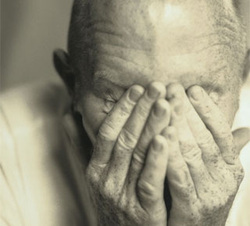
Jesus rhetorically said: "Then will not God give justice to his chosen, to whom he listens patiently while they cry out to him day and night?" (Luke 18:7 Revised English Bible) Those who have experienced an injustice -- some act or words spoken toward you that have caused you emotional pain -- think that what they really crave is justice. I've caused much emotional (even psychological) pain in others, and God brought about justice. (Remember that God does not deal with our sins as they deserve, cf. Ps. 103:10.) But sometimes even the justice does not satisfy. Why?
The justice does not always satisfy all people because what some victims really want is not justice but revenge -- they want the one who wronged them to suffer like they have suffered. While we can admit that this is a human reaction, what we cannot admit is that it is a biblical or righteous reaction. Seeking justice is a right response, especially since God is just, meaning He is justice, righteousness, holiness. Should justice never be met in your situation then you will still need to confront and do something with your pain; it will not go away on its own, and it can cause you further harm if not dealt with.
If you have lived for any decent amount of time, you have probably hurt someone in some way, no matter to what small degree. Surely, you wanted mercy and forgiveness when you wronged the person. Certainly, upon reflection, you wished you had not even started down the road that led to your offense. You cannot ease the pain of the one you hurt. That person was then in the position of needing to learn how to cope with being hurt by you. Now, if you are in a similar situation, you have to learn how to cope with being hurt by someone else. For your own emotional and mental well-being, you need to learn what to do with your pain.
First, you must express that pain to the Lord in prayer. I would suggest telling Him exactly how that pain made you feel; express your anger, frustration, pain, helplessness, hopelessness and difficulty in forgiving the one who wronged you. Admit to the Lord that you find forgiving the person very, very difficult -- be honest and transparent.
Second, I suggest sitting in silence (1) and try meditating on the goodness of God toward us undeserving sinners who are in Christ Jesus. Begin remembering how Jesus said on the cross, "Father, forgive them, for they do not know what they are doing." (Luke 23:34 NIV) None of us deserved forgiveness; we are equally offenders all. Not one of us is any more righteous than another, for all sinned and continue to fall short of the glory of God (Rom. 3:23).
Third, I would recall these words of Jesus: "For if you forgive others the wrongs they have done, your heavenly Father will also forgive you; but if you do not forgive others, then your Father will not forgive the wrongs that you have done." (Matt. 6:14-15 REB) Remember that while forgiving others may not be an easy task, such is the will of God, and that it will aid to your own healing.
The late Henri Nouwen encourages you -- out of his own deep, emotional pain -- to take the cup of sorrow you have been handed and to drink it fully (2). Take this pain that you have been given, embrace it, and then use it. Unless you own this sorrow, it will own you. This is the reality that was cast upon you -- begrudgingly, no doubt! Now, what will you do with this reality? Wrestle with it, overcome it, and then use it to your advantage. How? Others are also hurting. Show them what you have learned. Be for them a Christ-counselor.
Refusing to remain within a victim mentality, show them what an overcomer looks like. Testify to how God's goodness saw you through some of the darkest hours of your life. You'll be bringing Him glory and honor while also helping another hurting soul to heal. "Blessed is the God and Father of our Lord Jesus Christ, the Father of mercies and God of all comfort, who comforts us in all our troubles so that we may be able to comfort those experiencing any trouble with the comfort with which we ourselves are comforted by God." (2 Cor. 1:3-4 NET)
If you find all of this to be very difficult, understand that is normal; yes, this is very difficult; it seems nearly impossible, and it takes much time and effort and prayer. Only in and through relying on Christ will you be able to heal and then help others. But also take some comfort in knowing that Jesus longs to see you come through this for His glory, your well-being, and the well-being of other hurting souls.
__________
1 Silence can be a wonderful aspect and agent of healing. Henri Nouwen writes: "This might come as a surprise, since being silent seems like doing nothing, but it is precisely in silence that we confront our true selves. The sorrows of our lives often overwhelm us to such a degree that we will do everything not to face them. . . .
"Silence is the discipline that helps us to go beyond the entertainment quality of our lives. There we can let our sorrows and joys emerge from their hidden place and look us in the face, saying: 'Don't be afraid; you can look at your own journey, its dark and light sides, and discover your way to freedom.' We may find silence in nature, in our own houses, in a church or meditation hall. But wherever we find it, we should cherish it. Because it is in silence that we can truly acknowledge who we are and gradually claim ourselves as a gift from God." Henri J.M. Nouwen, Can You Drink the Cup? Tenth Anniversary Edition (Notre Dame: Ave Maria Press, 2008), 103-04.
2 Nouwen writes, "When we are fully committed to the spiritual adventure of drinking our cup to the bottom, we will soon discover that people who are on the same journey will offer themselves to us for encouragement and friendship and love." Ibid., 108.
This post was written by William Birch. For the original post, go to: http://classicalarminian.blogspot.com/2014/01/what-to-do-with-your-pain.html

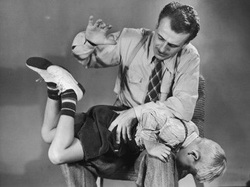
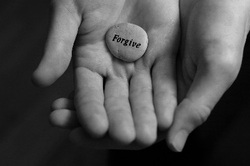

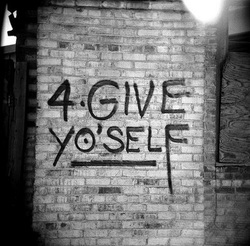

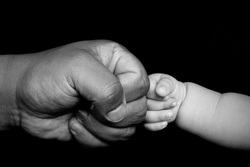
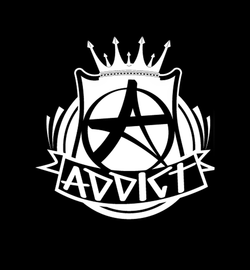

 RSS Feed
RSS Feed